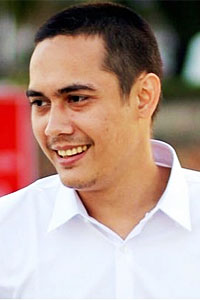The cause of children's rights got a lift last week when immigration police in Thailand announced that they would stop holding migrant and refugee children in the country's crowded immigration detention facilities.
A memorandum of understanding signed by Deputy Prime Minister Prawit Wongsuwon and representatives of various agencies acknowledges that children should only be detained as a measure of last resort and any detention should be as brief as possible.
Prior to this, children as young as 3 had been locked up alongside other inmates inside immigration detention centres (IDC) in Bangkok without any opportunity to go to school. The largest such centre, in Soi Suan Phlu, has long been notorious for overcrowding.
Measures to improve conditions have been taken since a BBC report on the plight of Pakistani Christians fleeing persecution in their country. It exposed the poor living conditions of refugee children and their mothers along with other inmates in the IDC and the death of one man from a heart attack in May 2017.
The number of migrant prisoners at IDC facilities has fallen sharply, from around 3,000 at its peak to 825 as of last week, mostly Britons, Syrians, Pakistanis, Russians and Turks. And there are no children. IDC warden Thatchapong Sarawanangkool said children and their mothers would now be located in shelters run by the Social Affairs and Human Development Ministry.
Human Rights Watch (HRW) has welcomed the commitment by the Thai government as a "commendable step [that] brings Thailand closer to international standards". But it continues to urge authorities "to immediately release all refugees arbitrarily detained in Thailand".
According to the UN High Commissioner for refugees (UNHCR), there were 97,577 refugees living in nine camps in Thailand as of December. Most are ethnic minorities, mainly Karen and Karenni, fleeing conflict in Myanmar over the past 30 years.
HRW also commented that while the agreement signed by Gen Prawit was a positive step, it fails to address the issue of family separation. Migrant mothers are only granted release from immigration detention after paying cash bail of 50,000 baht, after which they can be reunited with their children in holding shelters.
"The bail rate is exorbitant for most migrants and, particularly, refugees, who are prohibited from working in Thailand," said an HRW statement. As well, it said, the bail provision does not extend to fathers and is further restricted to mothers with children who are also in immigration custody.
HRW also urged the Thai government to "end the detention of all refugees held solely on the basis of their immigration status".
I believe Thai Immigration should definitely look into the family separation issue, especially the bail payment. As for ending the detention of all refugees held solely on the basis of their immigration status, if the UNHCR or another organisation decided to take them all away from Thailand then there should be no problem, but that is not the case.
Not everyone is as tech savvy or as lucky as Rahaf Mohammed al-Qunun, 18, the Saudi teen who was allowed to enter Thailand under care of the agency which granted her refugee status and later found her a home in Canada.
But not all of those who end up in Thailand want to leave. According to Lt Gen Surachate Hakparn, the Immigration Bureau chief, at least 200 Pakistani inmates refused to go home because of the violence there. And since Ms Qunun's case made headlines, he has vowed that Thailand "will not send anyone to their death".
It is important to note that Thailand is not a party to the 1951 Refugee Convention and there is no law to recognise refugee status or procedures to assess asylum claims. Officials estimate there are about 8,000 asylum seekers from 40 countries in Thailand, with 260 now held at Suan Phlu.
However, the country has signed off on the Global Compact for Safe, Orderly and Regular Migration and endorsed the Global Compact on Refugees during the UN General Assembly in December. These are good developments for Thailand.
What a pity, then, that children's rights have taken a step backward in the Philippines under the administration of Rodrigo Duterte and his relentless war on drugs. Legislators there are currently debating a bill to lower the age of criminal responsibility from 15 years to 12 (amazingly, it was 9 under an earlier proposal). This is certainly a step in the wrong direction -- especially when less than 2% of crimes are committed by minors in the Philippines.
